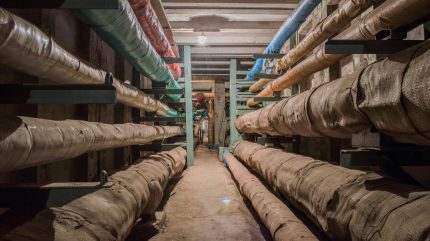
A new £1bn ($1.28bn) low-carbon infrastructure project has been launched in Westminster, London, which will provide heating to buildings in the UK.
This project, unveiled shortly after the UK government’s Autumn Budget announcement, marks a significant step towards driving investment and job creation. The low-carbon heat network in Westminster is expected to create 500 jobs and save 75,000 tonnes (t) of carbon dioxide (CO₂) annually.
Known as the South Westminster Area Network (SWAN), this project will supply heating using waste heat from sources such as the River Thames, the London Underground, and the city’s sewer system.
Project SWAN could potentially serve landmark buildings such as the Houses of Parliament and the National Gallery, as well as properties owned by Westminster City Council and the government.
It has been developed by the Department for Energy Security and Net Zero in collaboration with AECOM and Westminster City Council.
To implement the network, the SWAN Partnership, a joint venture between Hemiko and Vital Energi, was appointed last month. London Heritage Quarter is also a key partner in supporting the network’s growth.
The network is expected to cover a wide area, stretching from Victoria Station to Temple Underground Station near the Strand, and extending from St. James’s Park to the River Thames.
It will be one of the UK’s first ‘heat network zones’, where heat networks are identified as the most cost-effective and efficient means of decarbonisation compared to individual air-source heat pumps.
Construction of SWAN is scheduled to commence in 2026.
By 2050, every major town and city in the UK is expected to require district heat networks, necessitating more than £100bn of private investment and the creation of 290,000 new jobs.
This model is expected to be replicated in at least seven projects across the country within the next year, with further developments anticipated thereafter.


